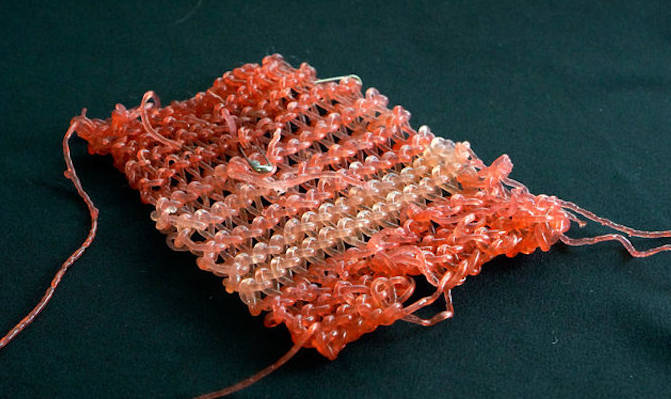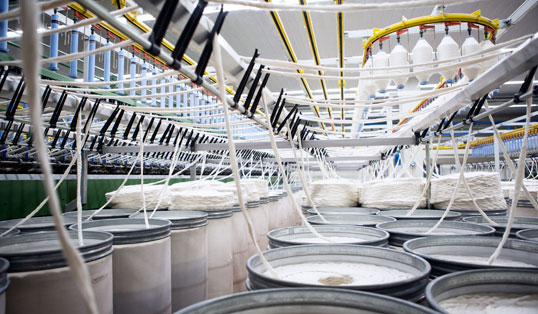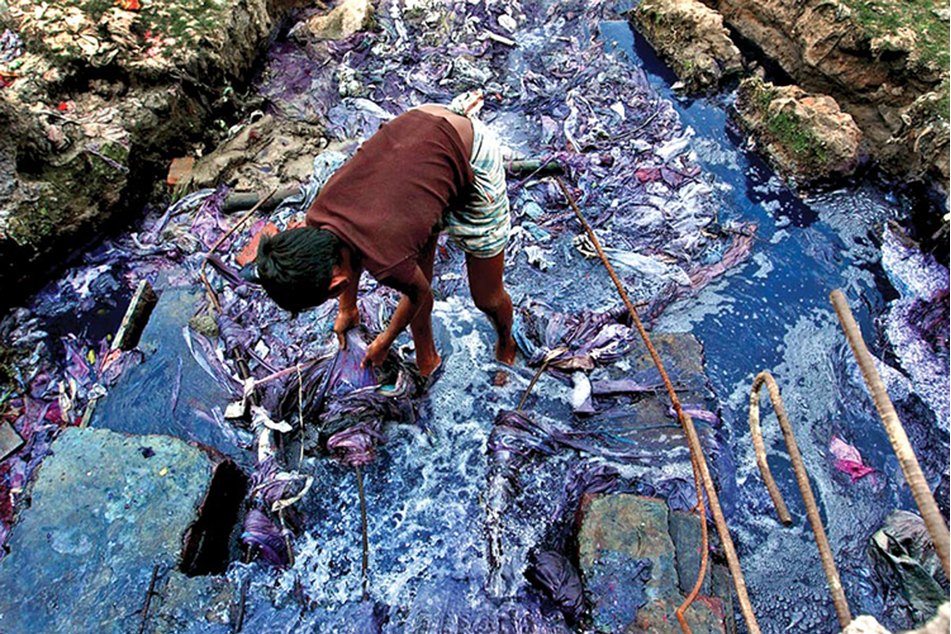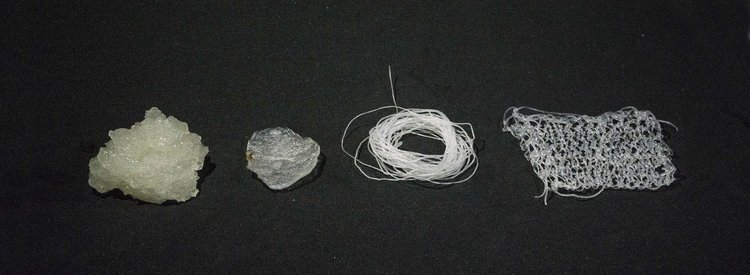
How big an eco-footprint does your closet represent? And how long will it take the contents to regenerate when you tire of them?
 These are some of the questions that environmentalists are asking the fashion industry. We’re all trying to reach minimum environmental impact, but synthetics regenerate easily, and their manufacturing processes are produces quantities of harmful emissions.
These are some of the questions that environmentalists are asking the fashion industry. We’re all trying to reach minimum environmental impact, but synthetics regenerate easily, and their manufacturing processes are produces quantities of harmful emissions.

Dyeing processes use large amounts of water and highly toxic chemicals. Cotton needs an arid climate that requires redirection of water into some kind of irrigation system, as well as extensive processing equipment and energy.
There are a lot of ways to answer these concerns, but FIT’s Professor Asta Skocir isn’t “sure that durable, long lasting clothing will encourage reduced consumption.” She set up the BioEsters project with a team of students working to develop biodegradable fibers from extruded funghi and bacteria. The project won the 2016 BioDesign Challenge for art and design students.
The team kept at their research and then won an even bigger prize: The National Geographic’s annual Chasing Genius Award.
AlgiKnit Wins a National Geographic Chasing Genius Award
The National Geographic awarded the team, now comprised of Aleksandra Gosiewski, Aaron Nesser, Tessa Callaghan in addition to Professor Skocir, $25,000 to develop the prototype into a marketable project. Additional support has been provided by the Fashion Institute of Technology and Columbia University, along with other tech companies.

This winter, the team is working with the life-sciences incubator Rebel Bio, at the Imperial City College London, to work with scientists and entrepreneurs on improving the product and marketing it to investors for production.
The project continues to generate a lot of press, as you can see below.
http://challenge.biomimicry.org/en/custom/gallery/view/15875
The promise of Bioyarn from AlgiKnit
Another Solution to the Fast-Fashion Fad: Seaweed